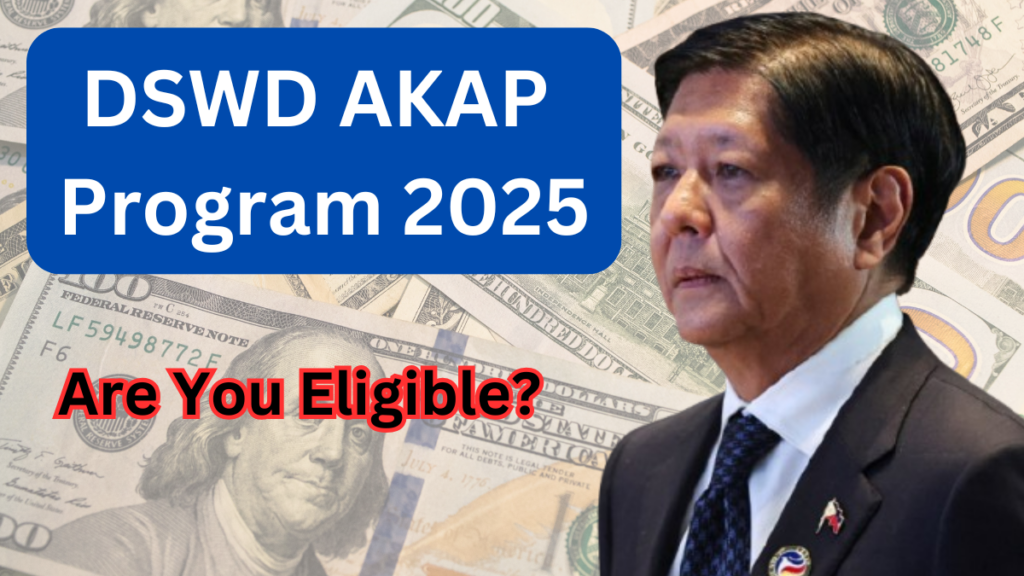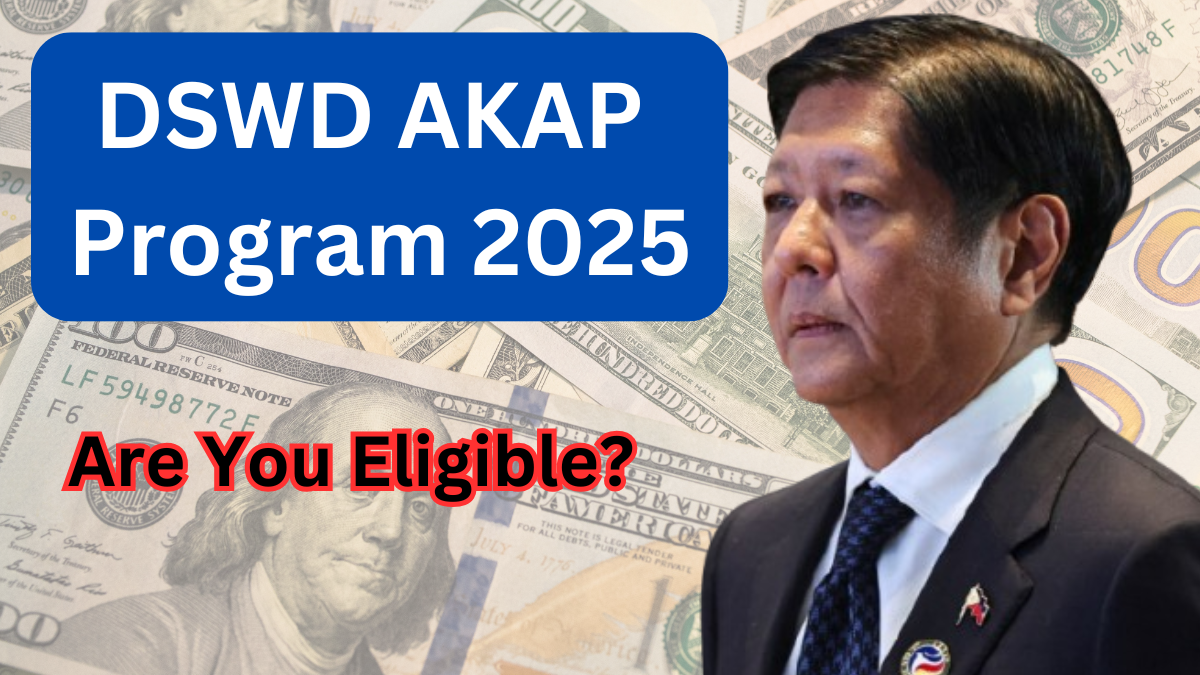The Department of Social Welfare and Development (DSWD) continues to strengthen its commitment to supporting low-income families in the Philippines through the Ayuda para sa Kapos ang Kita Program (AKAP). This initiative has been a crucial financial aid program, providing much-needed assistance to Filipinos facing economic hardships. In 2025, the program is set to expand further, ensuring more families benefit from its provisions.

Overview of the DSWD AKAP Program
The Ayuda para sa Kapos ang Kita Program (AKAP) was introduced by the DSWD to assist financially struggling households. Since its inception in 2024, the initiative has reached nearly five million beneficiaries, significantly easing their financial burdens. The program has an allocated budget of PHP26.7 billion, with PHP26.157 billion successfully distributed, reflecting a remarkable 99.31% budget utilization rate. Several regions, such as Cagayan Valley (Region 2), Davao Region (Region 11), and Caraga (Region 13), reported full utilization of their allocated funds, showcasing the efficiency of the program.
AKAP primarily targets near-poor families who do not qualify for other government financial aid programs. This initiative underscores the government’s commitment to strengthening social protection policies and enhancing financial stability for vulnerable communities.
Key Features of the AKAP Program
The program provides various forms of financial assistance, catering to the diverse needs of eligible families.
Eligibility Criteria
To qualify for the AKAP program, applicants must meet the following conditions:
- Household income must be below the officially recognized poverty threshold.
- Families should not be recipients of other government financial aid programs.
- Eligibility verification is conducted by licensed social workers to ensure transparency and avoid duplication.
Types of Assistance Provided
AKAP provides multi-faceted support to help families manage essential expenses. The table below outlines the types of aid offered:
| Form of Assistance | Details |
|---|---|
| Cash Assistance | PHP5,000 per qualifying family |
| Medical Aid | Coverage for healthcare expenses |
| Food Assistance | Provision of essential food supplies |
| Funeral Support | Financial aid for burial expenses |
These benefits help families navigate emergencies such as medical needs, food shortages, and unexpected funeral expenses.
Efficient Fund Utilization and Regional Performance
The AKAP program’s near-total budget utilization rate of 99.31% highlights its effective implementation. Several regions have excelled in fund distribution, ensuring equitable aid allocation:
- Cagayan Valley (Region 2): Demonstrated effective management and outreach.
- Davao Region (Region 11): Ensured timely and well-coordinated disbursements.
- Caraga (Region 13): Set a standard for efficiency and transparency in fund distribution.
Governance and Transparency Measures
The program is governed by stringent measures to maintain fairness and prevent political interference. Funds are allocated through the General Appropriations Act (GAA) and are managed with high levels of accountability.
Key Governance Strategies:
- Thorough Beneficiary Verification: Social workers conduct rigorous assessments.
- Cross-Program Coordination: Prevents overlaps with other government initiatives.
- Non-Partisan Implementation: Ensures that aid distribution is free from political influence.
DSWD Secretary Rex Gatchalian has reaffirmed the department’s dedication to transparency, ensuring that financial aid reaches eligible beneficiaries efficiently.
Impact on Beneficiaries
The AKAP initiative has positively affected millions of Filipino families by providing critical financial assistance. Key benefits include:
- Reduced Food Insecurity: Many families use the funds to purchase essential groceries.
- Medical Assistance: Covers urgent healthcare expenses.
- Emergency Relief: Helps manage sudden costs like funeral expenses.
Beneficiaries have expressed deep appreciation for the support, which has significantly improved their financial stability and well-being.
Expansion and Future Plans for 2025
The success of the AKAP program has paved the way for its expansion in 2025. The government aims to extend aid to an additional five million families, ensuring continued financial support for those in need.
Planned Improvements:
- Collaboration with the Department of Labor and Employment (DOLE): Integrating job opportunities for beneficiaries.
- Partnership with the National Economic and Development Authority (NEDA): Refining implementation strategies for greater efficiency.
- Digital Payment Integration: Streamlining disbursements through modern financial technologies.
These enhancements will strengthen the program’s impact, ensuring effective fund allocation and increased accessibility for beneficiaries.
Conclusion
The AKAP program has played a transformative role in alleviating financial hardships for near-poor households in the Philippines. With its efficient execution, transparent governance, and commitment to social welfare, the initiative serves as a model for future assistance programs. As it expands in 2025, AKAP will continue to provide essential financial relief, reinforcing the government’s mission to uplift vulnerable communities.
Frequently Asked Questions (FAQs)
1. Who can apply for the AKAP program? Households earning below the poverty threshold and not receiving aid from other government programs are eligible. Verification is conducted by social workers.
2. How much financial assistance is provided under AKAP? Qualified families receive PHP5,000 in cash aid, along with support for medical expenses, food supplies, and funeral costs.
3. How can beneficiaries claim their financial assistance? Funds are distributed through authorized financial institutions, local government units, and designated payout centers.
4. Will the AKAP program continue beyond 2025? While the program is set for expansion in 2025, future continuity will depend on government funding allocations and policy priorities.
Click here to learn more
Sachin is a dedicated writer specializing in education, career, and recruitment topics, delivering clear and actionable insights to empower readers.
